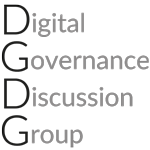By Dr. Irina Soeffky.
“We consider the multi-stakeholder approach essential for global digital networking,” states Germany’s first Strategy for International Digital Policy. Indeed, as digital transformation accelerates, the significance of the multi-stakeholder approach becomes even more pronounced.
We are all witnessing how digital technologies are increasingly transforming every aspect of our daily lives, from the way we communicate to how we conduct business. The Internet and digital technologies have connected us in ways we never thought possible. This interconnectedness stimulates innovation, promotes the free flow of information, drives economic growth, fosters collaboration across borders, and leads to a more integrated global community.
However, these advancements bring new challenges. This is a pivotal moment for the future of global digital policy. Digital technologies have become a key geopolitical factor, influencing human rights, democracy, freedom, and economic prosperity. As access to and control over these technologies are becoming more crucial, proactive engagement is essential. The digital era cannot be left to evolve by itself; not only governments but all stakeholders must steer it in the right direction to ensure that it serves the greater good.
That is the central idea of Germany’s first Strategy for International Digital Policy, adopted by the Federal Government in early 2024. The Strategy outlines a comprehensive framework for Germany’s global digital engagement, positioning Germany as a reliable partner in shaping a digital order that promotes democracy, prosperity, and resilience. It is built around nine guiding principles that serve as a strategic compass for the entire Federal Government, emphasizing human rights and a global, open, free, and secure Internet.
These principles are the result of an inclusive multi-stakeholder process. More than one hundred organizations and individuals, including civil society, technical community, academia, and business, contributed through various open dialogue formats. International stakeholders and representatives from international organizations also played a key role in shaping these principles.
This is no small matter. We believe that processes with meaningful stakeholder input and participation lead to better results. Policymaking is more effective when it incorporates the perspectives, insights, and experience of all stakeholders who are navigating the opportunities and challenges of digital transformation. However, stakeholder participation is not always easy and can sometimes require significant time and resources. As we have seen, this was certainly the case with intergovernmental processes such as the Global Digital Compact, and it may be the case with the upcoming WSIS+20 review process.
Germany will continue to advocate for a strong a meaningful stakeholder participation in intergovernmental processes. But it is also important that we integrate stakeholders into policymaking at the national level and use their insights in intergovernmental processes. As the ministry responsible for international digital policy, we have therefore established a regular dialogue with domestic stakeholders in Germany to factor in their insights not only for our Strategy for International Digital Policy but also for the Global Digital Compact negotiations and other international processes. For the upcoming WSIS+20 review process, we will continue to engage with stakeholders intensively to ensure their voices are heard.
The guiding principles of our Strategy for International Digital Policy will also inform our approach to the WSIS+20 review process. This includes protecting and guaranteeing human rights in the digital space, ensuring the multi-stakeholder approach in Internet governance, and promoting the safe, secure, and trustworthy use of emerging technologies such as artificial intelligence. We will continue to advocate consistently for the fundamental elements of our digital world: a global, open, free, and secure Internet. Together with our international partners and all stakeholders, we must emphasise and actively promote the benefits of an open Internet as we move forward.
However, our Strategy for International Digital Policy is a long-term project and goes beyond the upcoming WSIS+20 process. As the Federal Government, we have committed, among other things, to continuing to involve stakeholders intensively in the planning of our international digital policy and to recognizing the need for political action at an earlier stage. This is why we have established a new stakeholder process for strategic foresight. We have created two task forces that will develop possible future scenarios for Internet governance and international AI governance by next year. These task forces are made up of outstanding experts from civil society, business, academia, and the technical community. They are not predicting the future, nor could they; rather, their aim is to systematically approach future developments. This enables us to reduce complexity and recognize significant changes more clearly. The goal is not only to support government but all stakeholder groups in identifying any need for action at an early stage and in shaping the global digital space with greater foresight.
Of course, we not only need a clear picture of future developments, but also individuals who can benefit from opportunities and master future challenges. That is why we are currently supporting young adults through a new fellowship programme entitled “International Digital Policy.” The fellowship enables them to effectively incorporate their ideas into international digital policy formats. As part of this initiative, we are facilitating participation in this year’s Internet Governance Forum (IGF), the primary multi-stakeholder platform for discussing Internet governance issues, as well as in other international formats.
As we navigate this dynamic landscape of international digital policy, our commitment to a multi-stakeholder approach remains paramount. By actively engaging stakeholders, encouraging innovative ideas, and fostering open dialogue, we can shape a digital future that reflects diverse perspectives and shared objectives. Together, we can navigate the complexities of the digital landscape and work towards protecting human rights, democracy and freedom in the digital space while creating prosperity in a globalized digital economy.
Dr. Irina Soeffky, Director for National, European and International Digital Policy, Federal Ministry for Digital and Transport (BMDV), Germany
